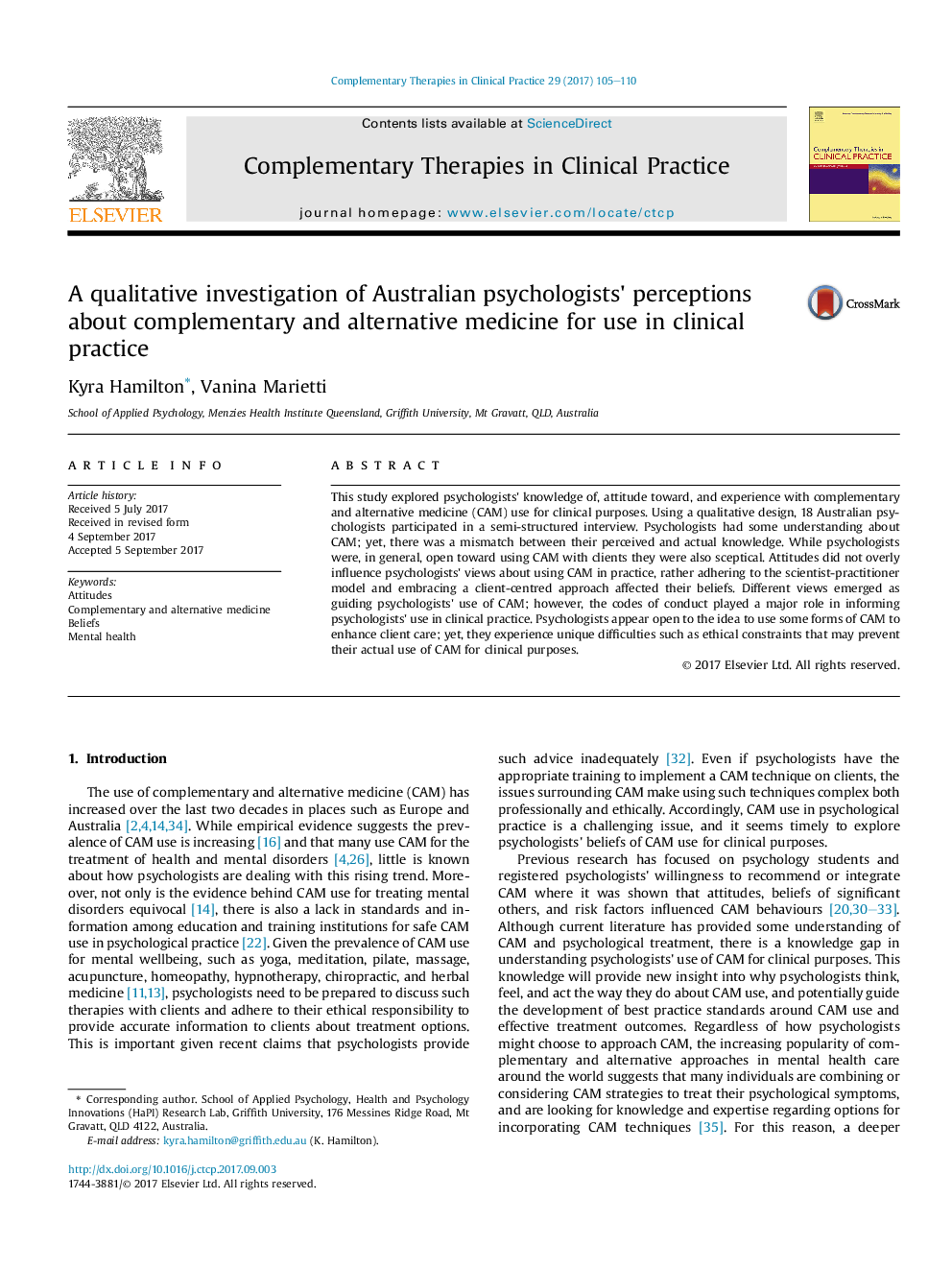| Article ID | Journal | Published Year | Pages | File Type |
|---|---|---|---|---|
| 5565046 | Complementary Therapies in Clinical Practice | 2017 | 6 Pages |
Abstract
This study explored psychologists' knowledge of, attitude toward, and experience with complementary and alternative medicine (CAM) use for clinical purposes. Using a qualitative design, 18 Australian psychologists participated in a semi-structured interview. Psychologists had some understanding about CAM; yet, there was a mismatch between their perceived and actual knowledge. While psychologists were, in general, open toward using CAM with clients they were also sceptical. Attitudes did not overly influence psychologists' views about using CAM in practice, rather adhering to the scientist-practitioner model and embracing a client-centred approach affected their beliefs. Different views emerged as guiding psychologists' use of CAM; however, the codes of conduct played a major role in informing psychologists' use in clinical practice. Psychologists appear open to the idea to use some forms of CAM to enhance client care; yet, they experience unique difficulties such as ethical constraints that may prevent their actual use of CAM for clinical purposes.
Related Topics
Health Sciences
Medicine and Dentistry
Complementary and Alternative Medicine
Authors
Kyra Hamilton, Vanina Marietti,
